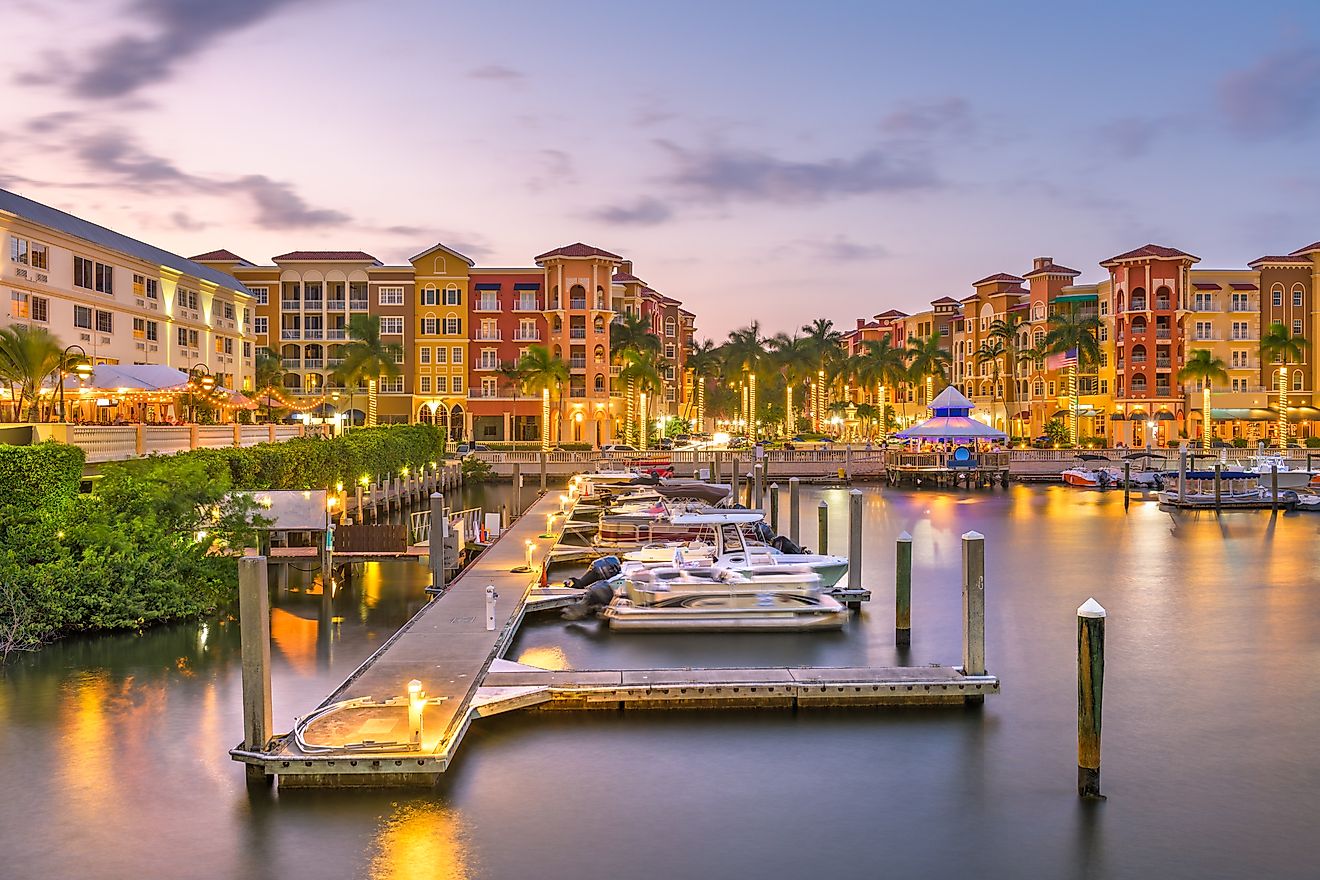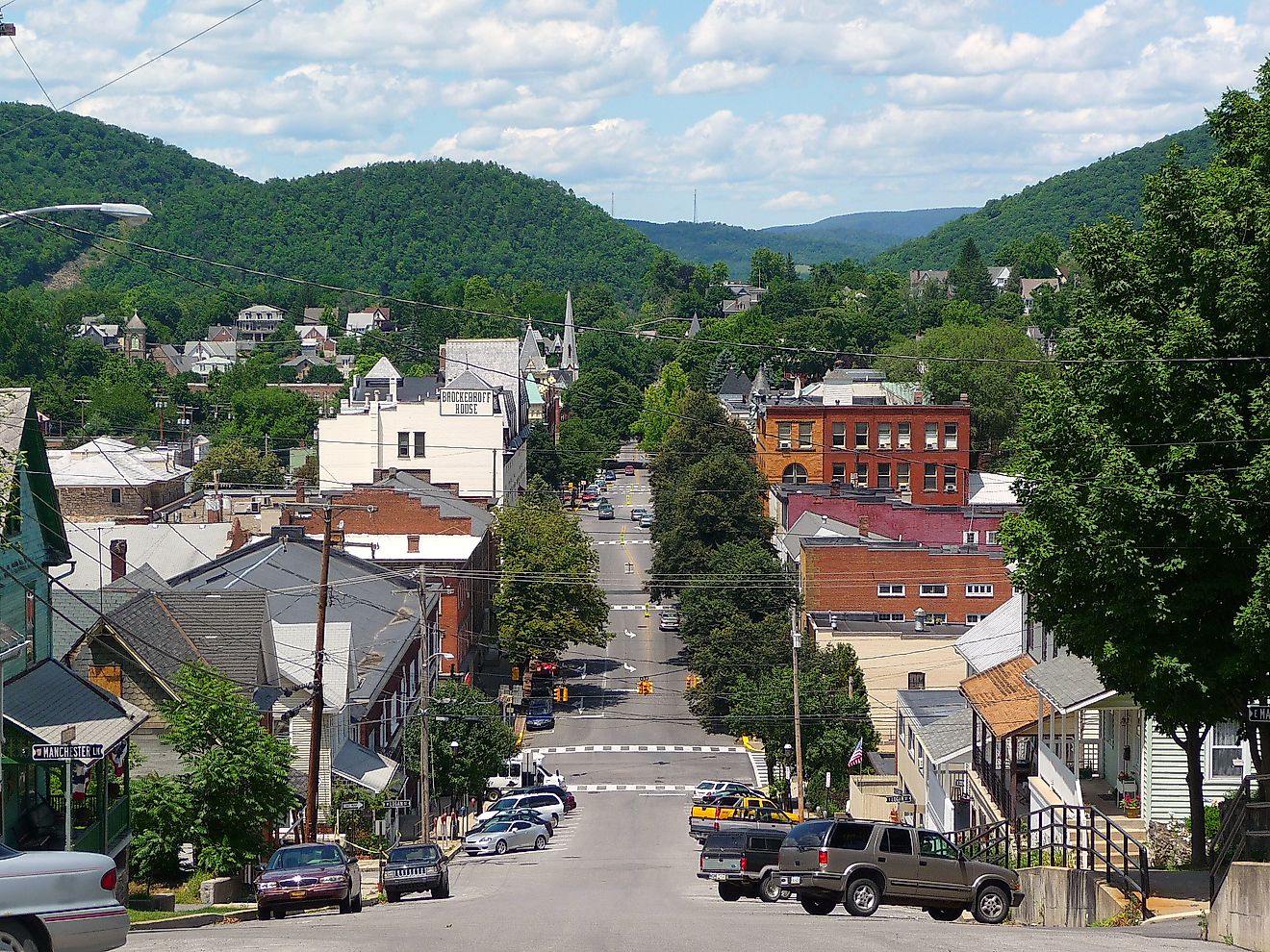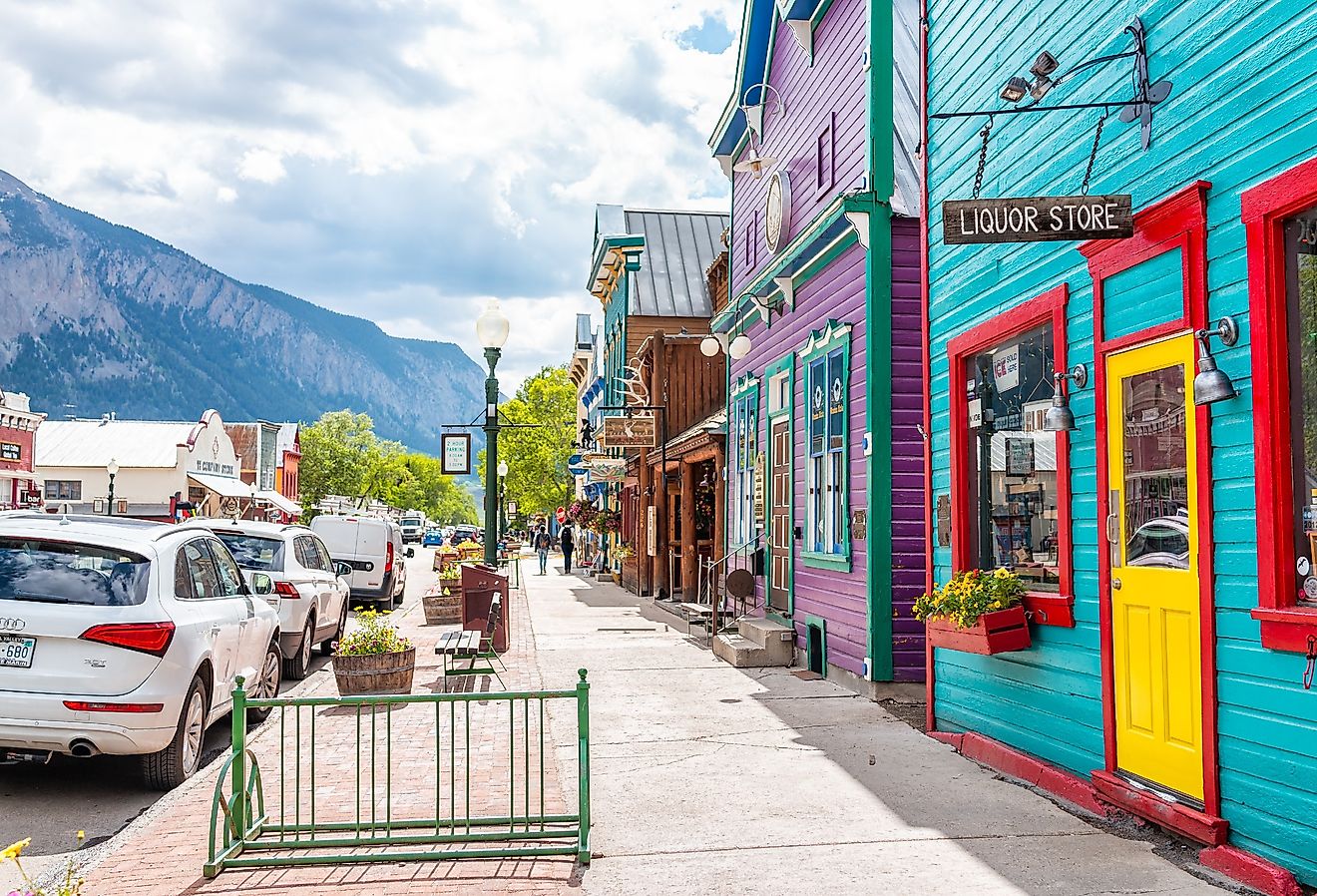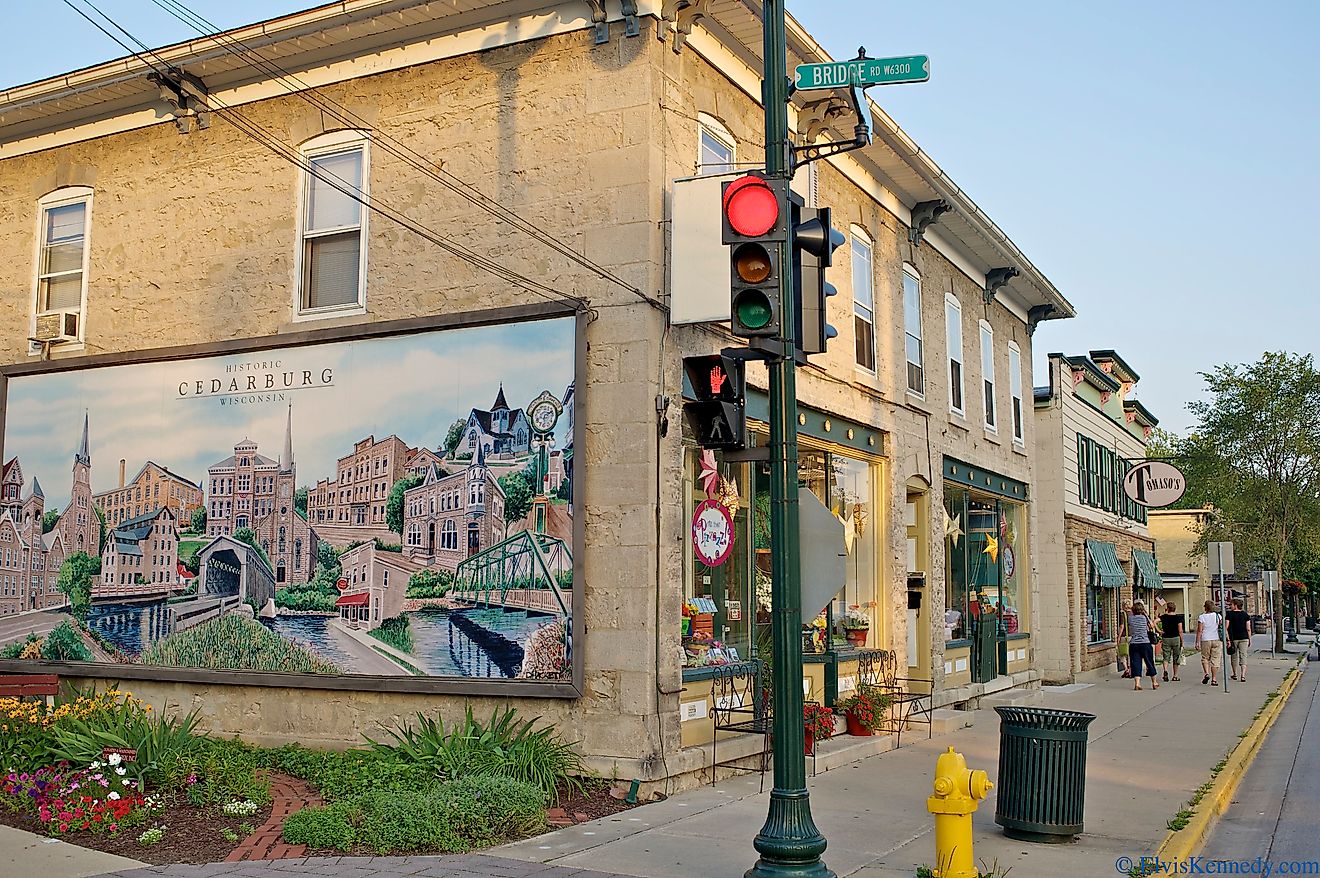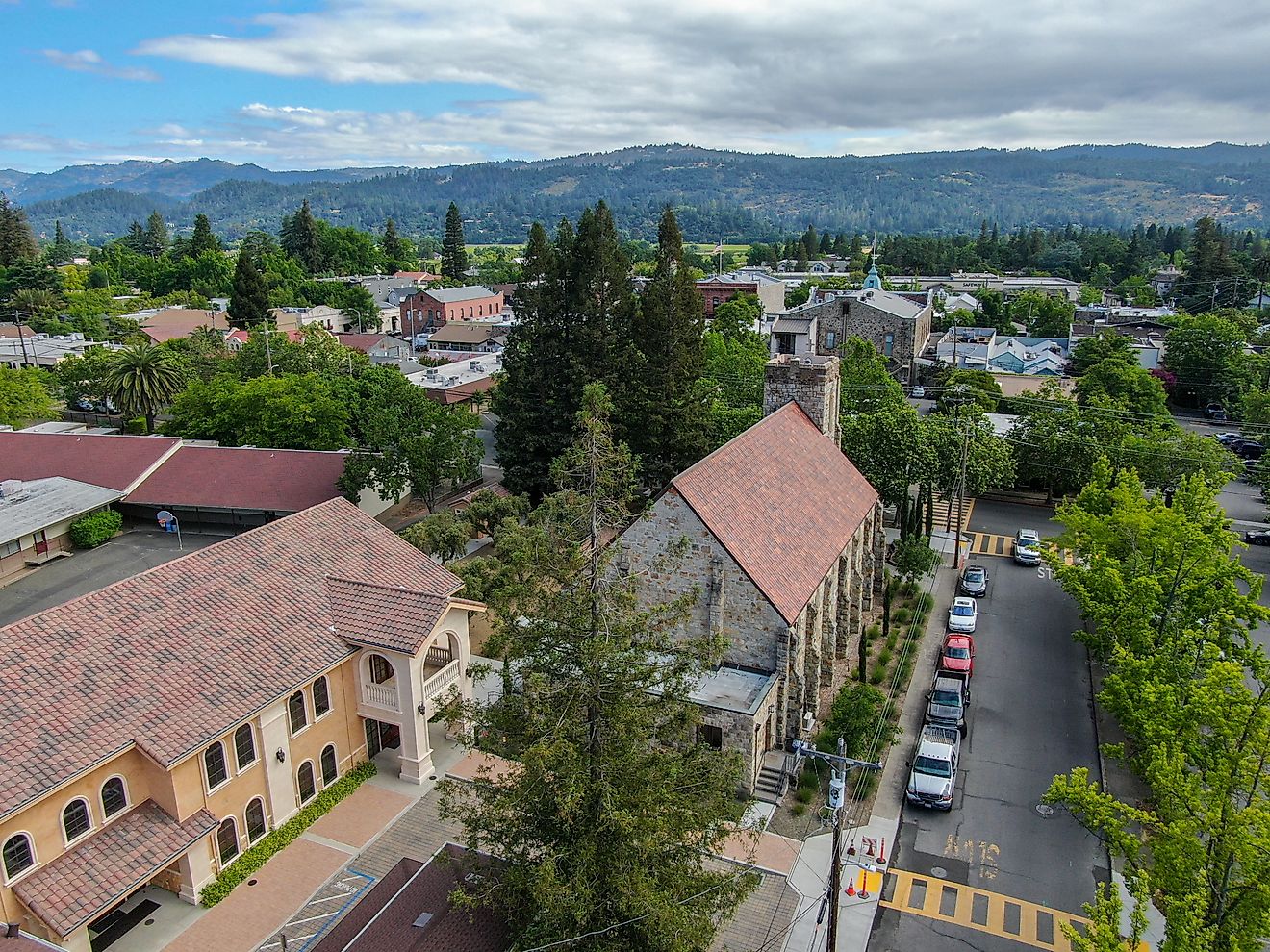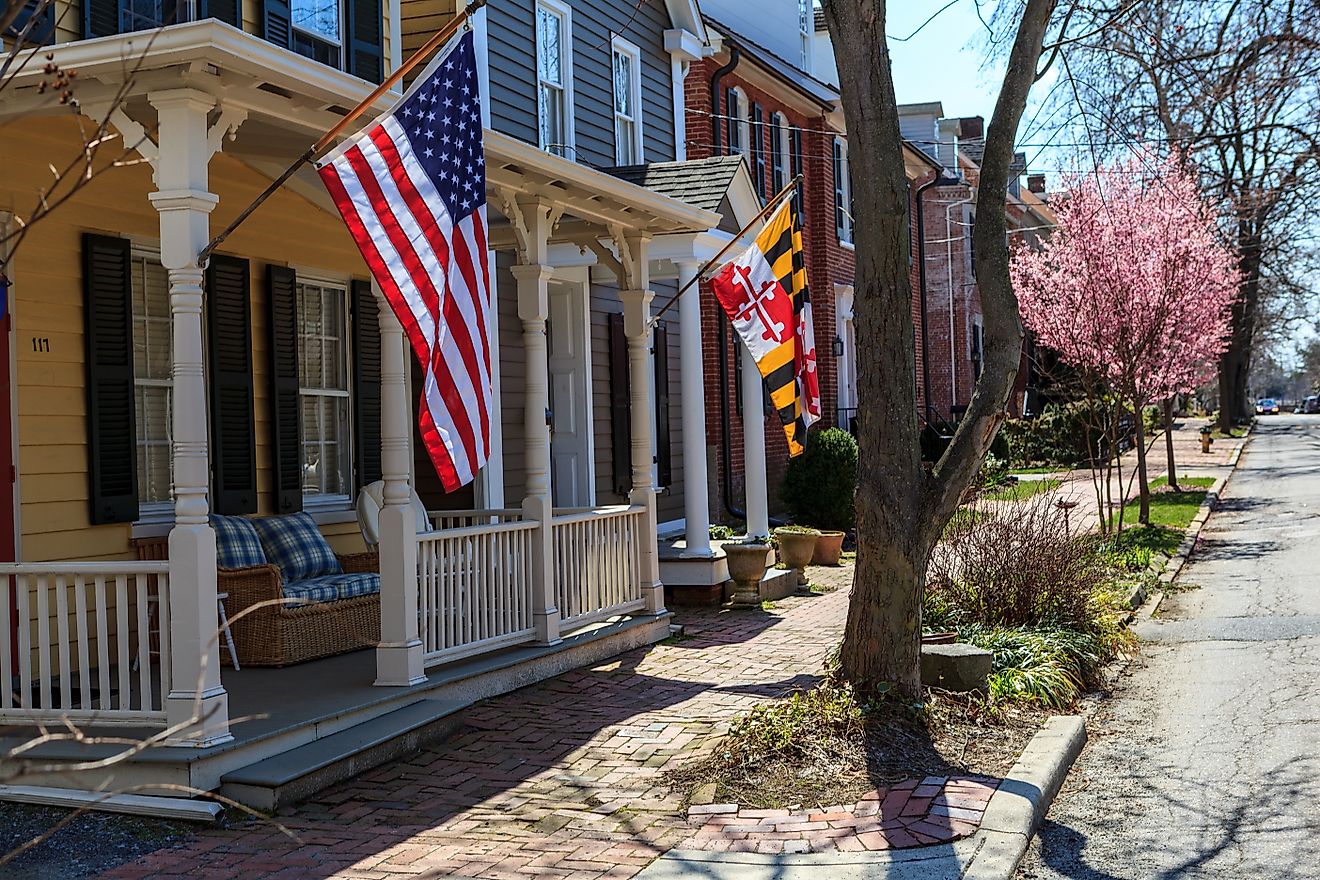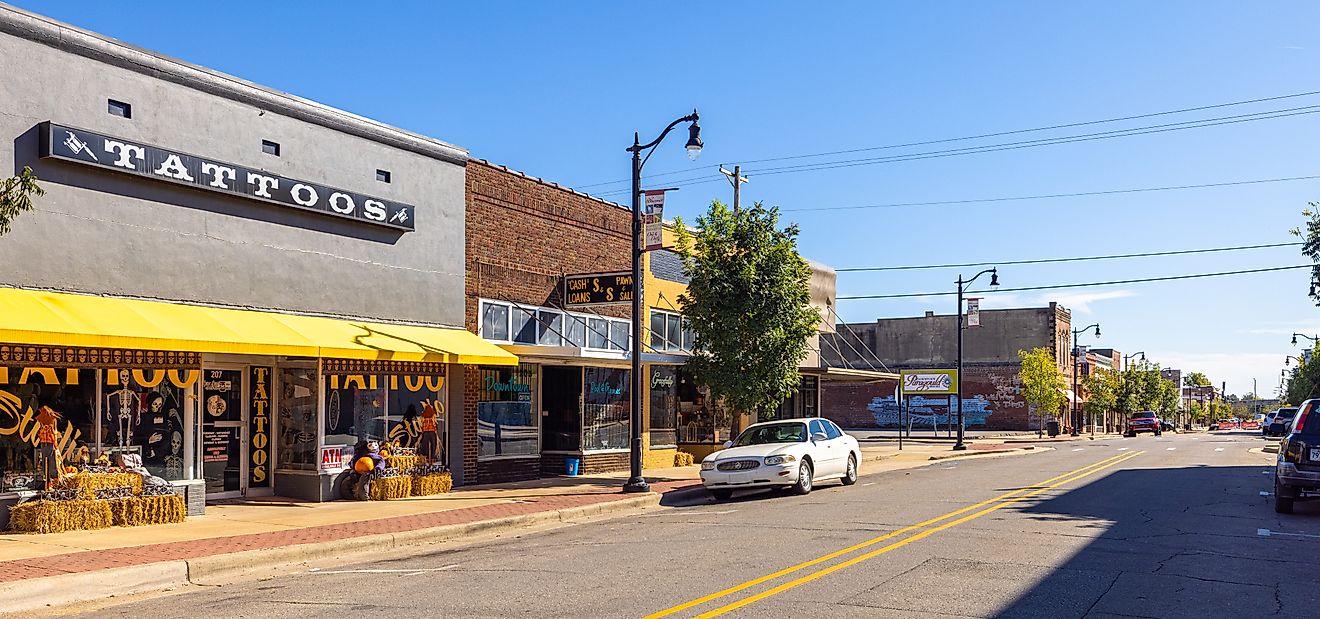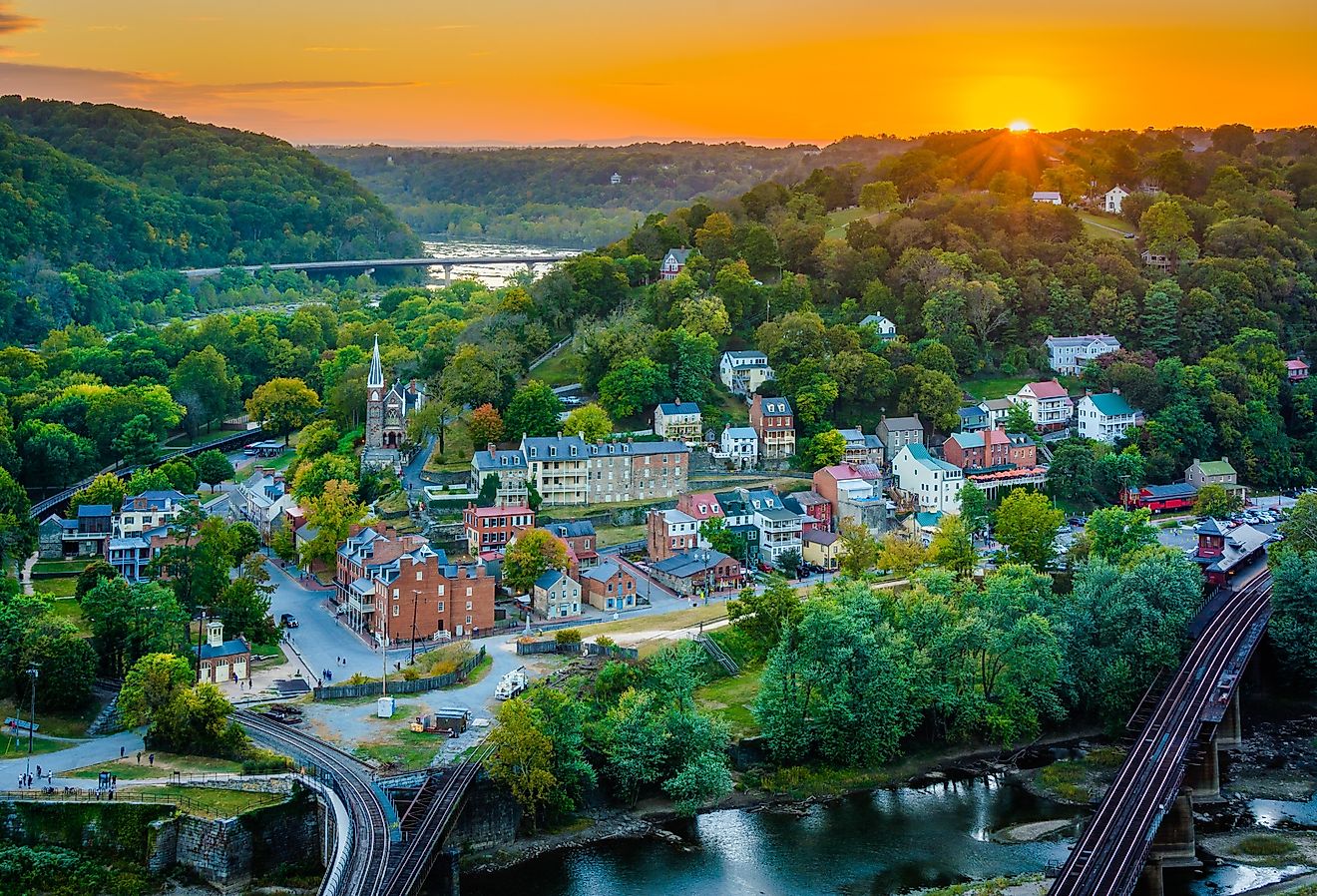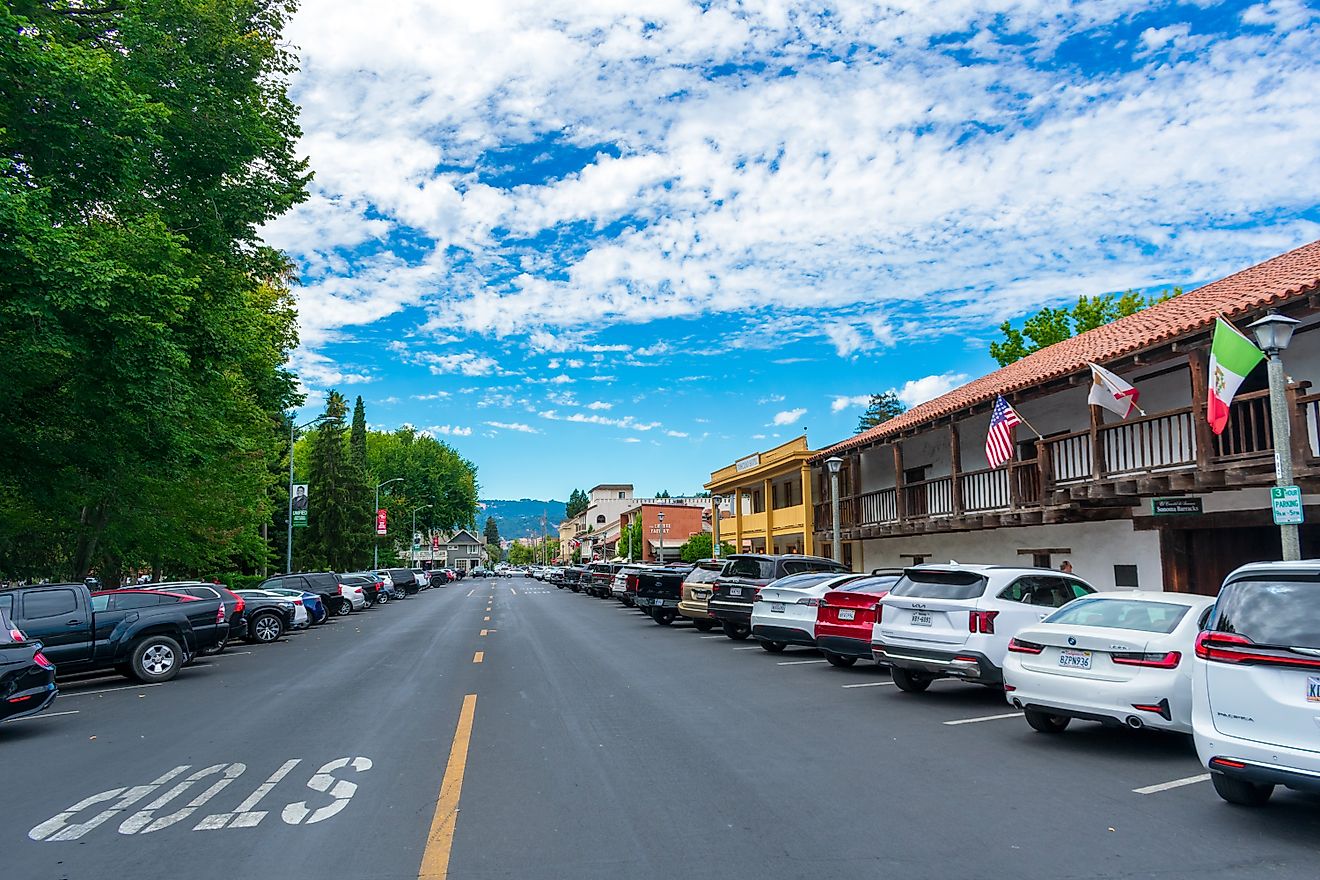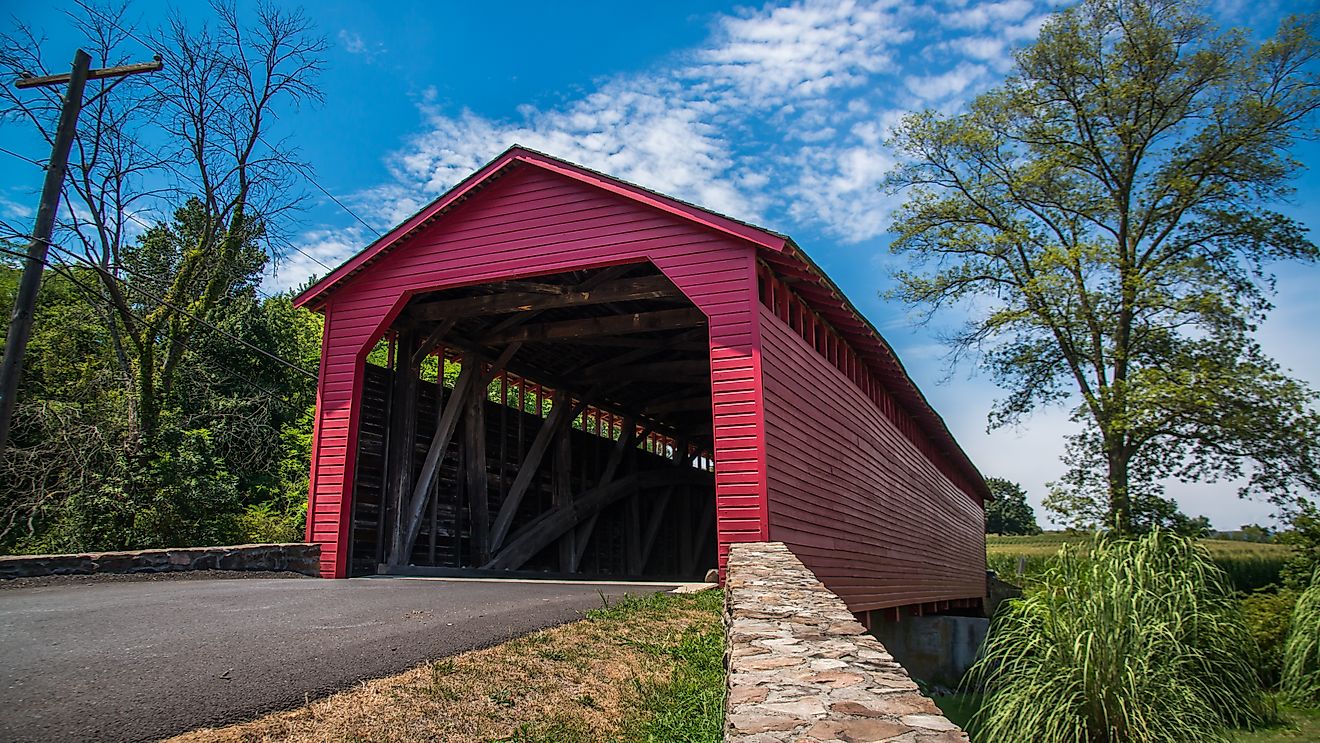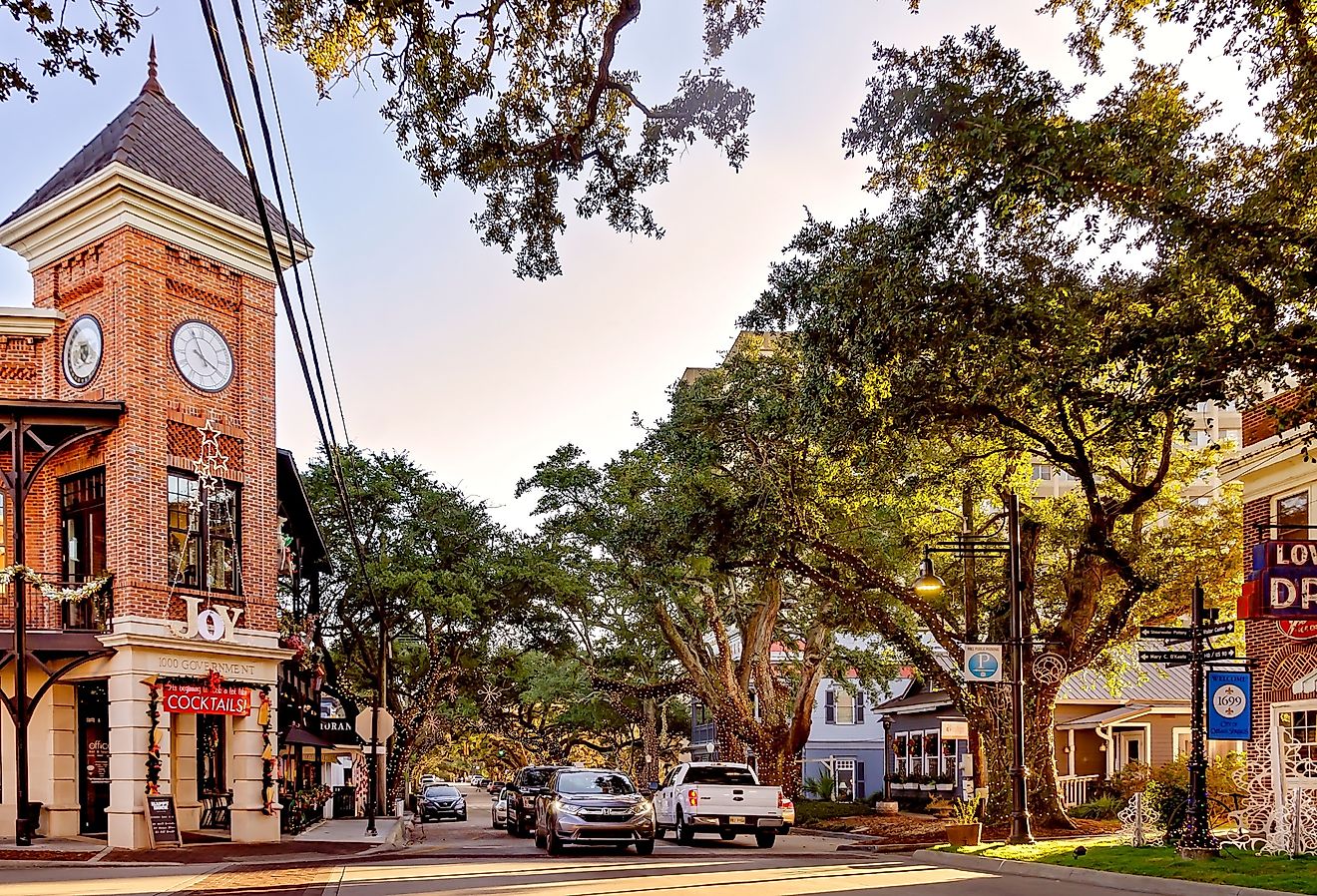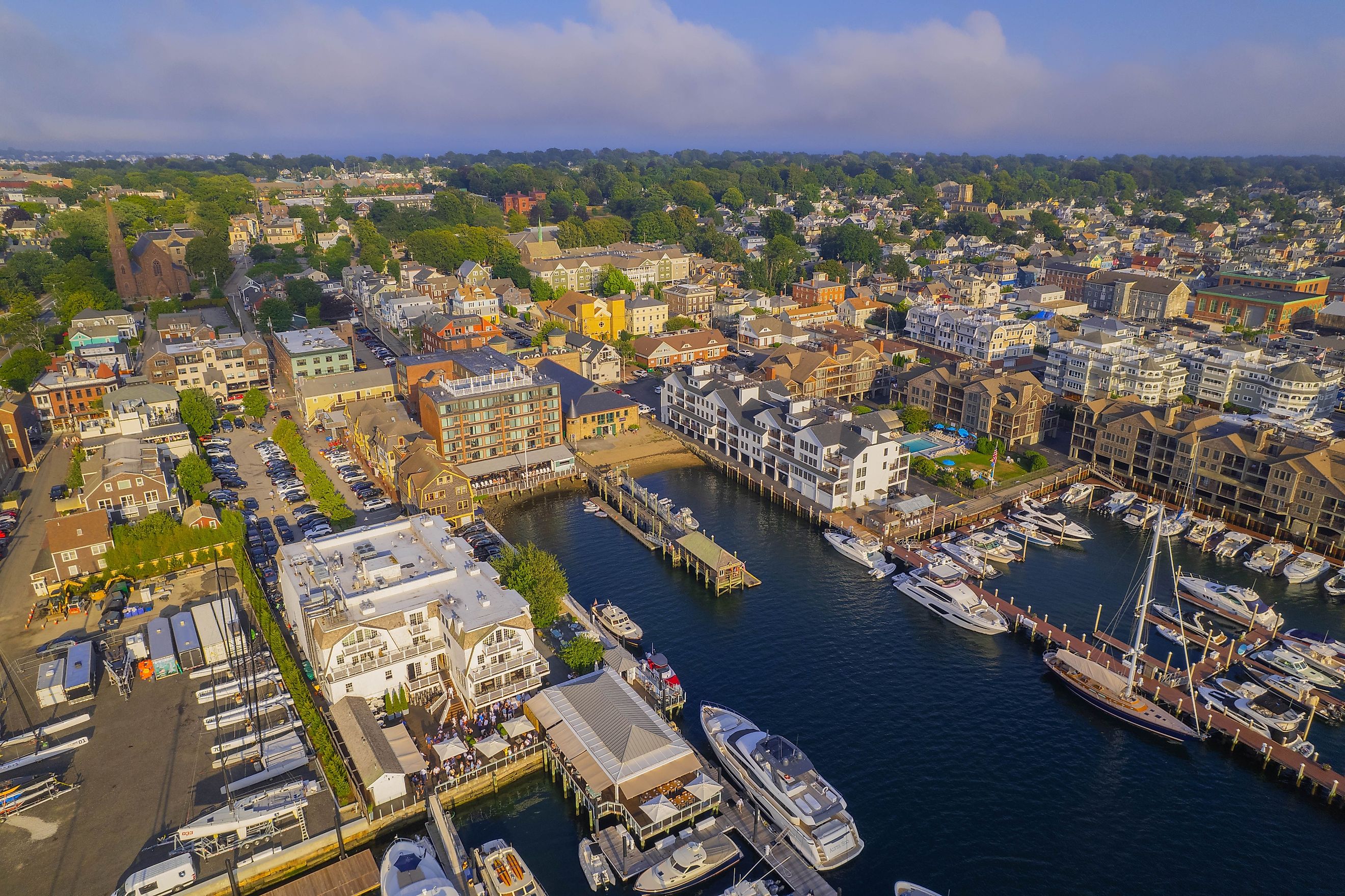
These 8 Towns In Rhode Island Have Beautiful Architecture
Rhode Island may be small in size, but it has a big story to tell. As one of the original 13 colonies, Rhode Island has a long and storied history, which is reflected in the architecture of its many small towns. These small towns have all sorts of unique sites, such as a two-story schoolhouse that operated until the 1990s, a cottage with a windmill attached to it, and beautiful 17th-century architecture. From Wickford to Newport, here are eight small towns in Rhode Island with great architecture to explore.
Wickford
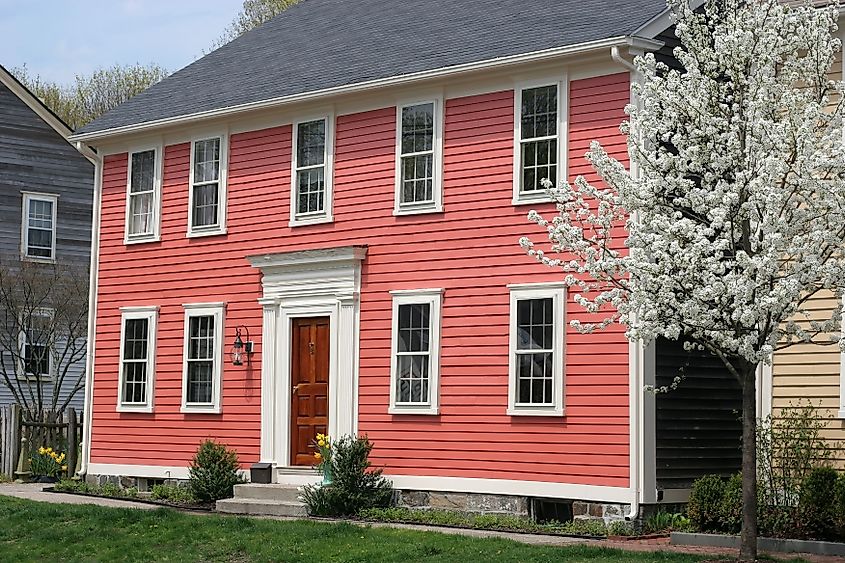
This island was originally occupied by the Narragansett Native Americans, who later sold the land to Roger Williams and Richard Smith in 1637. The town would later become a major shipbuilding facility during the colonial era and was largely untouched by the American Revolutionary War. Today, this village is a part of North Kingstown As such, you will find many buildings going back to the colonial era or the early years of America both in the village and in larger North Kingstown. One such example is the Allen-Madison House, a two-and-a-half-story structure built in 1801 after the British burned down the original home during the American War of Independence. Within the Wickford village is the David S Baker Estate, which consists of two buildings, one one-and-a-half-story mansard-roofed Italianate structure and the other a two-and-a-half story house with a tower sitting atop the house.
Narragansett
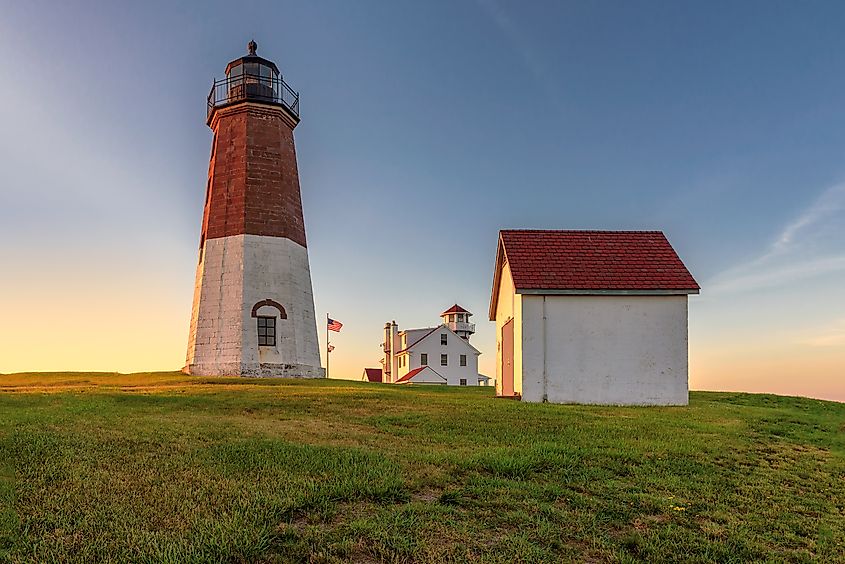
Speaking of the Narragansett, this whimsical Rhode Island town was named after them. It was initially part of the larger Narragansett Country, and it likely chose this name to distinguish itself from other towns that chose more English-sounding names. You're definitely going to want to spend your time exploring the architecture in this town due to the sheer variety. For example, the Towers are one of the most iconic features in Narrangansett, which are the remains of the Narragansett Pier Casino from the 1880s. In town, you will also see the Kinney Bungalow, built in 1899 by tobacco and real estate tycoon Francis S. Kinney. This structure was built at the turn of the century in an East Indian style. Today, it sits in Sunset Farm. Lastly, you can find several beautiful churches in town, including the 1852 St. Peter 's-by-the-Sea Episcopal Church, an English gothic structure with beautiful stained glass windows, and a statue of Jesus built by sculptress Florence Brevoort Kane.
Burrillville
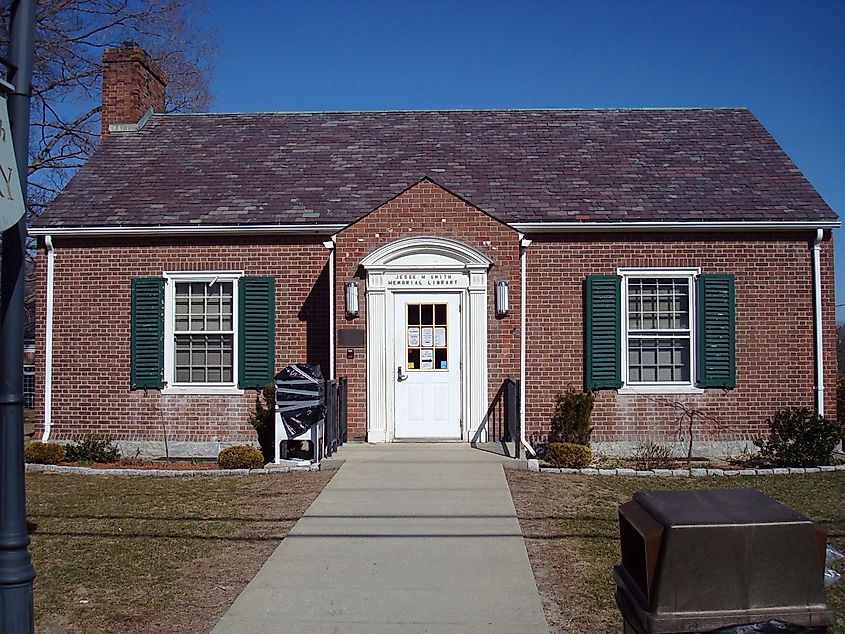
First established in 1730, this town would later become a center for wool production. Today, there are multiple villages within Burrillville that hide beautiful architecture for the discerning traveler to discover. One of the best treasures in town is the Bridgeton/Sweeny School, a two-story schoolhouse built in 1897 and remained open until 1995. Today, the school is the headquarters of the Burrillville Historical and Preservation Society, which offers tours of the facility. You'll find prime examples of late 18th-century architecture in Burrillville, such as the Esten-Bowen House built in 1790, a timber-fame Cape-style house featuring a large central chimney. Another intriguing school to explore is the Pascoag Grammar School, a Colonial Revival structure built in 1917 with a T-shaped brick structure. It remained open until 1995 and is now part of the National Register of Historic Places.
Little Compton
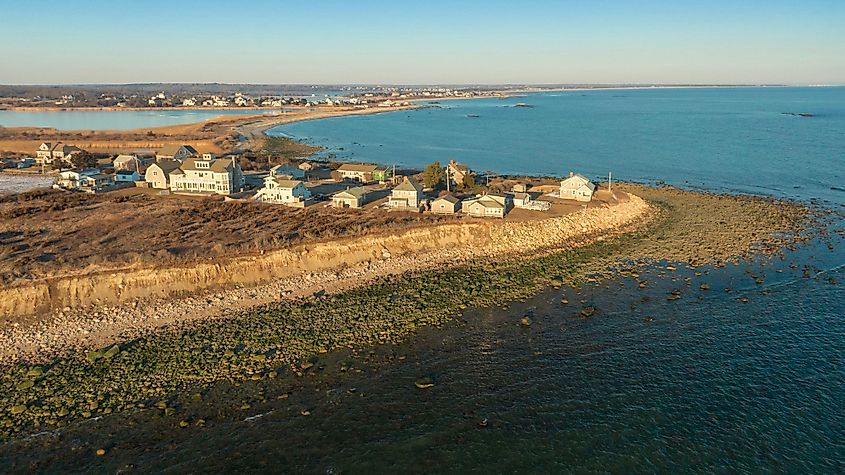
Don't let the name fool you; this town isn't a part of California. It's a historic settlement in Rhode Island. It was first part of Plymouth Colony before being annexed to Newport County into Rhode Island in 1747. Within Little Compton, you will discover structures dating back to the earliest days of American settlement: the 1600s. Of note is the Wilbor House, built in 1690 and now serving as the base for the Little Compton Historical Society. This house is a two-and-a-half-story building, with the eastern portion built in the 1600s and the western side built in 1740, giving the house an eclectic appearance. Little Compton was a major center for the Quakers, which is on full display in the Friends Meeting House and Cemetery built in 1815. This simple two-story wood frame building showcases the humility of its Quaker residents. Within the Common Historic District, you'll discover several Greek Revival structures, such as the 1832 United Congregational Church.
East Greenwich
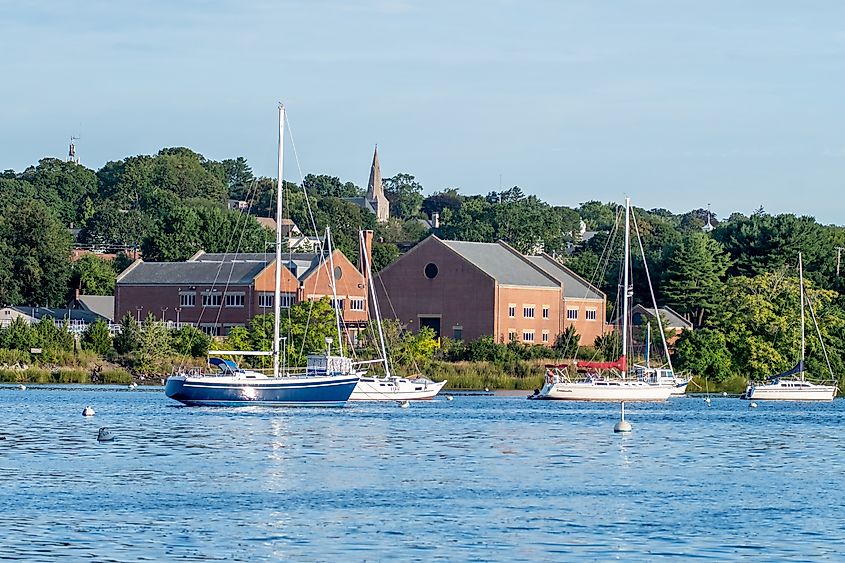
East Greenwich was incorporated in 1677, making it one of the oldest towns in the entire state of Rhode Island. In 1772, the Rhode Island State Assembly created the first formal Navy in the United States in East Greenwich, and the town would later serve as the state capital from 1806 to 1854. Within East Greenwich, you will discover a rich variety of structures, such as the 1778 James Mitchell Varnum House, built by a Revolutionary War General. This house is a Georgian-style mansion with modillioned cornices, a columned porch, and a hipped roof. Speaking of the American Revolutionary War, you can discover an intriguing piece of Revolutionary War history at The Kentish Guards Armory, built in 1843, built to honor the Kentish Guards militia who defended East Greenwich from British attacks during the Revolutionary War. The Armory is built in a Greek Revival style and contains pictures of members of the guard. For another unique spot, visit the Windmill Cottage, a 19th-century building that was originally just a single cottage until American poet Henry Wadsworth Longfellow attached the windmill to the home.
Richmond
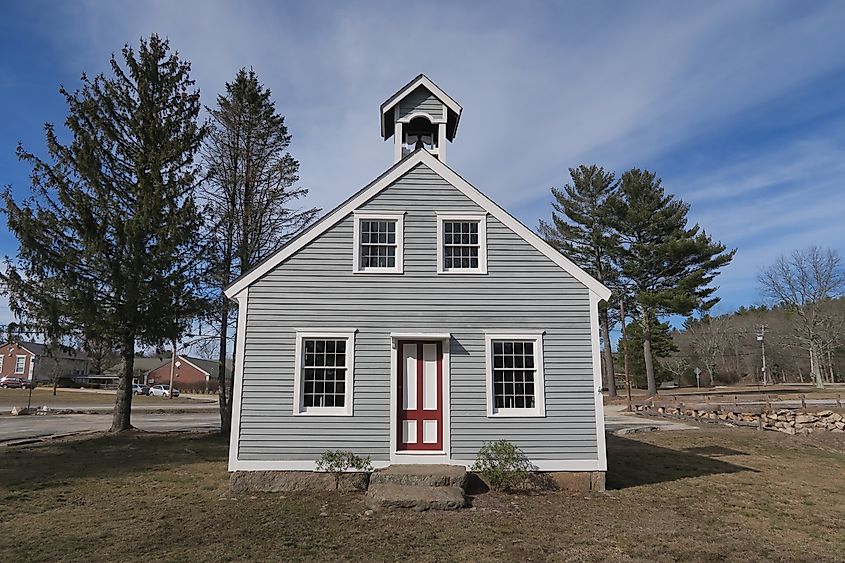
This town wasn't named after Richmond, Virginia, but rather after Edward Richmond, the Attorney General of Rhode Island from 1671 to 1680. In Richmond, you'll find great examples of historic farmsteads by visiting the Beaver River Road Historic District, which was recently added to the National Register of Historic Places. One such spot is the Hoyle Farm, which includes a Cape-style house and a family cemetery going back to 1853. The house has two one-story ells and is surrounded by turf and hay fields. You can also find the Walnut Hill Farm/Cliffmoore, which includes an 1860 farmhouse and two smaller ones from the late 1800s. Lastly, check out the Cape-style Jamesford Farm built in the early 1800s in the Federal style, which also includes a 20th-century gable-roof farm. Within the town, you can also find a pristine one-house schoolhouse built in 1898 called the Bell School House. This house has been restored to its former glory with a grey exterior and a small bell tower.
Slatersville
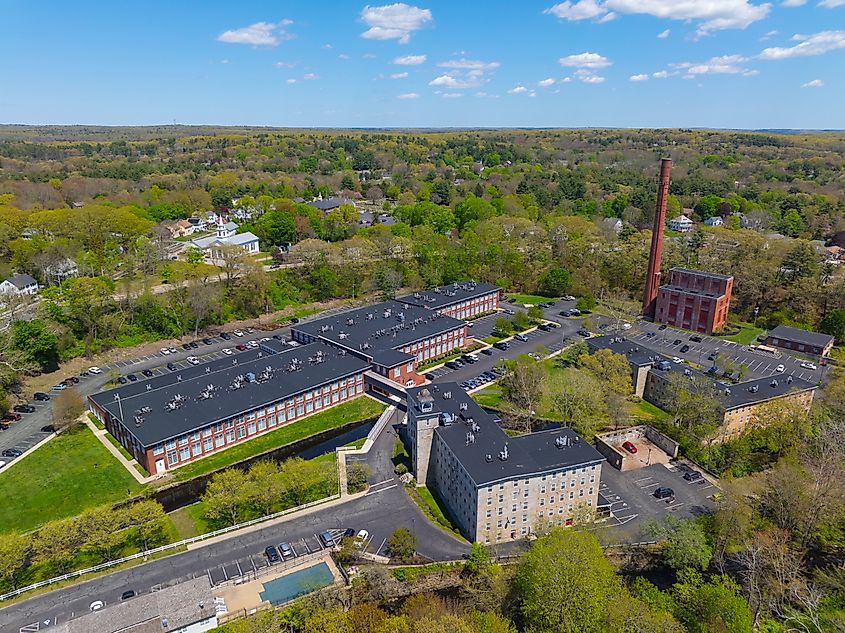
Founded in the early 1800s by John Slater, Slatersville is the first mill village in the United States. The village sprung up around the mill to house the workers. The town preserves much of this history in its buildings, which have been maintained by town residents. For example, by visiting the commercial block, you can also see Center Mill, a four-story building featuring a five-story bell tower. The bell would ring to call workers to work. The bell itself was often criticized by residents for contributing to what many considered to be an oppressive industrial environment. Other spots in town include the 1838 Greek Revival Slatersville Congregational Church and the 1810 John Slater House, where the founder himself lived. This house is a simple two-story structure with a red door that was similar to other employee houses. By visiting these places, you'll learn a lot about both the struggles of early American industrialization and how workers lived.
Newport
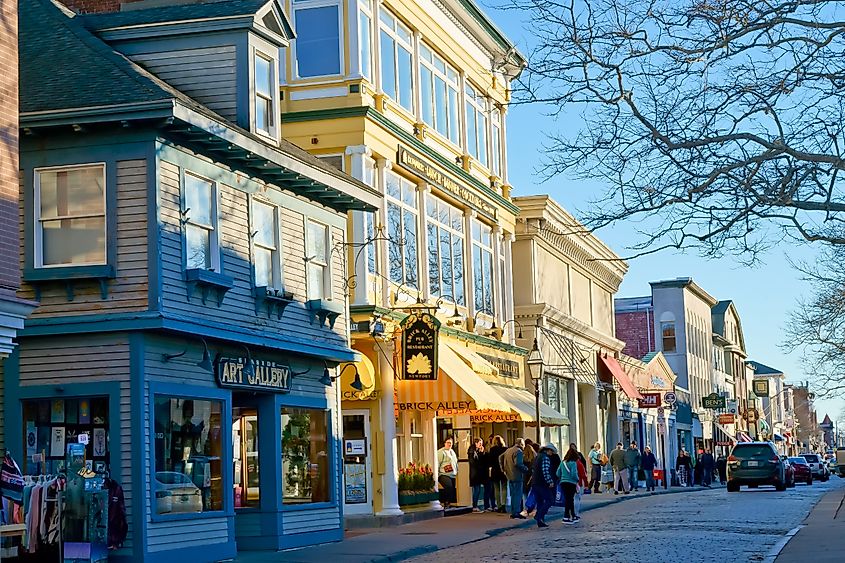
This town was founded by English colonists in 1639, but the first English settler to arrive was none other than Anne Hutchinson, a famous religious leader and dissenter who was driven out of Boston for going against certain teachings of the Puritans. Since then, Newport has seen many immigrants come into town from all parts of the world, and as a result, the architecture is one of the best in the world. For example, the 1883 Isaac Bell House is a picturesque shingle-style structure that combines Japanese, English, and wider European styles to create one of the best Gilded Age structures still standing. It is known for its Japanese open floor plan inside the structure, along with inglenook fireplaces and natural rattan wall coverings. It was built during the Guided Age for cotton broker Isaac Bell Jr. In addition, Newport is full of other mansions, such as the 48-room mansion, the Elms, which was built in 1901 and based on a French chateau. It has a mixture of tapestries, gardens, terraces, and fountains that are designed to invoke the feeling of being in the Old World. Lastly, visitors can also explore an old 19th-century fort called Fort Adams, which was designed to house 468 cannons.
Within the historical buildings of Rhode Island's small towns, you will discover the stories of America's past. You can also see America's diverse religious and cultural traditions on display at Quaker Meeting houses, Congregational Churches, and Catholic Churches founded by immigrants. That's not to mention all the picturesque farmsteads you can see during a relaxing drive through the state. You'll definitely want to take the time to explore the homes and structures of these small Rhode Island towns.
